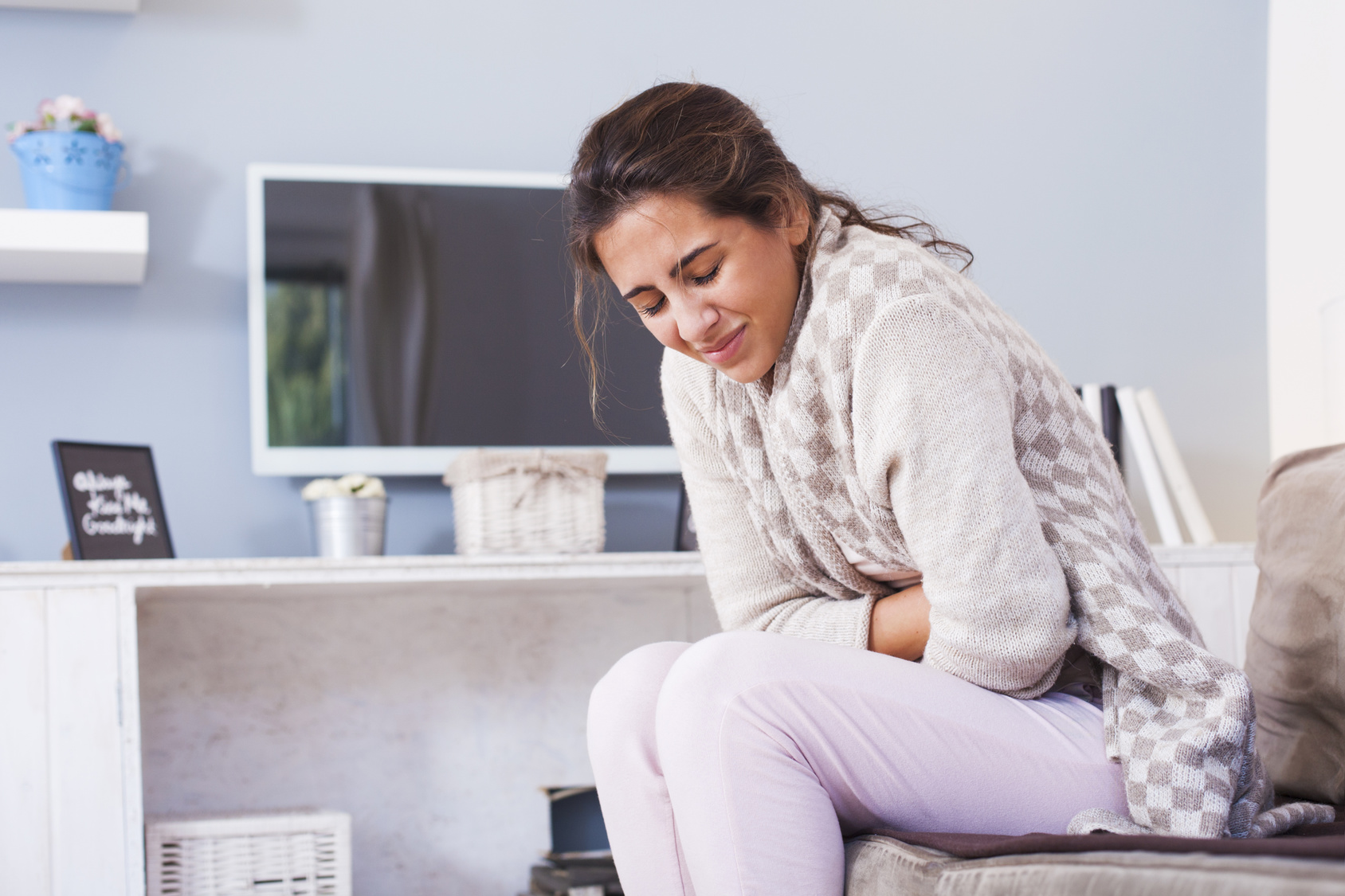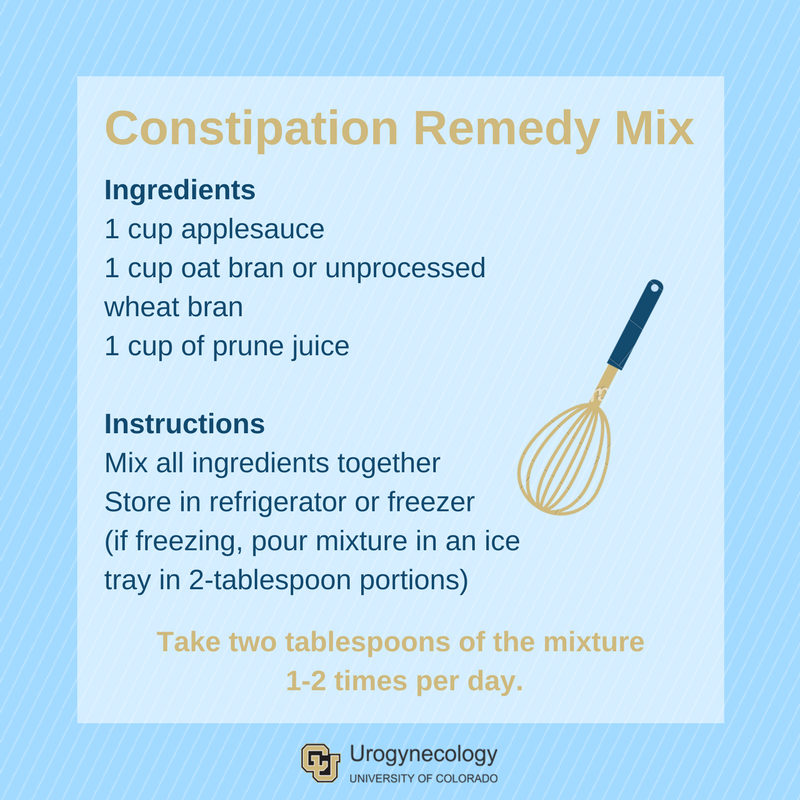Don’t let bowel movement problems “POP” your pelvic floor organs
 I’m going to be honest, when it comes to urogynecology – any medical field, really – there are highs and lows. It is incredibly rewarding for me to help a woman overcome her pelvic floor issues and resume a normal life. However, many of the conditions and symptoms that my patients face in the meantime are rather unpleasant.
I’m going to be honest, when it comes to urogynecology – any medical field, really – there are highs and lows. It is incredibly rewarding for me to help a woman overcome her pelvic floor issues and resume a normal life. However, many of the conditions and symptoms that my patients face in the meantime are rather unpleasant.
I think it’s safe to say that constipation falls into this realm of unpleasant conditions.
Aside from being uncomfortable, constipation can also lead to more serious pelvic floor problems. The National Institute of Diabetes and Digestive and Kidney Disease defines constipation as having “fewer than three bowel movements a week, or hard, dry and small bowel movements that are painful or difficult to pass.”
Over time, this can cause strain to the pelvic floor organs due to the increased pressure placed on them.
What happens when too much strain is added to pelvic floor organs? POP, which stands for pelvic organ prolapse. In simple terms, POP is what happens when one or more of a woman’s organs in the pelvic area drops from its normal position. This can lead to pressure against the vagina wall, pain in the lower back, urinary incontinence and/or bowel problems.
Though constipation is not the one and only contributor to POP, it is definitely a factor. So why not do what we can to control it? After all, constipation is not something any of us want to face – with or without POP.
Looking for more diet tips? Read Dr. Connell’s blog on smart drinking choices to prevent frequent urination & bladder pain.
The constipation diet: fiber, fiber and … more fiber
Keeping an eye on what you eat is a great step, if not the only step you can take, in preventing constipation. Foods that are high in fiber are easy to digest and will allow your body to produce steady bowel movements. Adult women should get 25 grams of fiber daily in their diet.
Stay regular, eat fiber. Here’s how:
Say yes to fruits and veggies
Whether you enjoy eating sandwiches, salads, dips, oatmeal – whatever your favorite foods may be – make an effort to add fruits and vegetables to them. This will probably come easier than you think because many of these items pair very well with fruits and vegetables (a great tip is to add fresh fruit to oatmeal). High-fiber options include:
- Dark colored vegetables – collard greens, spinach, carrots, beets and broccoli
- Artichokes pack more fiber than any vegetable (10 grams)
- Potatoes, if you eat the skin
- Exotic fruits – mangos, guava, persimmons
- Raspberries, bananas, oranges, apples (eat the peels, please).
Go for grains
The next time you find yourself going for white bread, white rice or regular pasta, stop. Replace those foods with whole-grain bread, brown rice and whole wheat pasta. Also try to add multigrain cereals, whole wheat crackers and oats into your diet if they are not already present.
Most of these grainy foods have at least 5 grams of fiber per serving.
When in doubt, bean it out
We all know that beans are known to cause gas, which also proves that they help increase bowel movements. I’ve found that beans make great additions to salads, soups and even main courses. The next time you’re trying to come up with a side dish, keep beans in mind.
White and navy are the highest fiber beans. Garbanzo, lima and pintos are also good. And don’t forget legumes such as soybeans, lentils and peas.
There are also many bean alternatives to common foods. For example, try a black bean burger instead of a cheeseburger.
Fiber supplements
In general, it’s better to get fiber through real foods in your diet. Sometimes food allergies or other lifestyle choices can prevent people from eating these high-fiber foods. In this case, I suggest adding a fiber supplement.
Fiber supplements can be purchased over the counter at most grocery and convenience stores. Be sure to check with your doctor prior to jumping into fiber supplements because they can sometimes affect other medications and can also produce side effects, particularly in people with intestinal problems.
Stay hydrated
Staying hydrated is an important part of keeping any bodily function normal. It is especially important during diet changes while your body adjusts to higher or lower intake of certain foods (in this case, fiber). Staying hydrated also helps to flush out toxins and keep urine and bowel movements steady.
If all else fails…
Sometimes even with a fiber-heavy diet, constipation can still occur. After all, we are humans and unexpected things can happen.
If you find yourself having difficulty passing a bowel movement, try our constipation remedy.

If constipation continues to occur, it is always best to come see us so we can make sure your condition is addressed in the most beneficial way for you and your pelvic floor.
University of Colorado Urogynecology is a specialty women’s health practice focused on female pelvic health and surgery. Our physicians are also professors & researchers for the CU School of Medicine, one of the top-ranked medical schools in the nation.